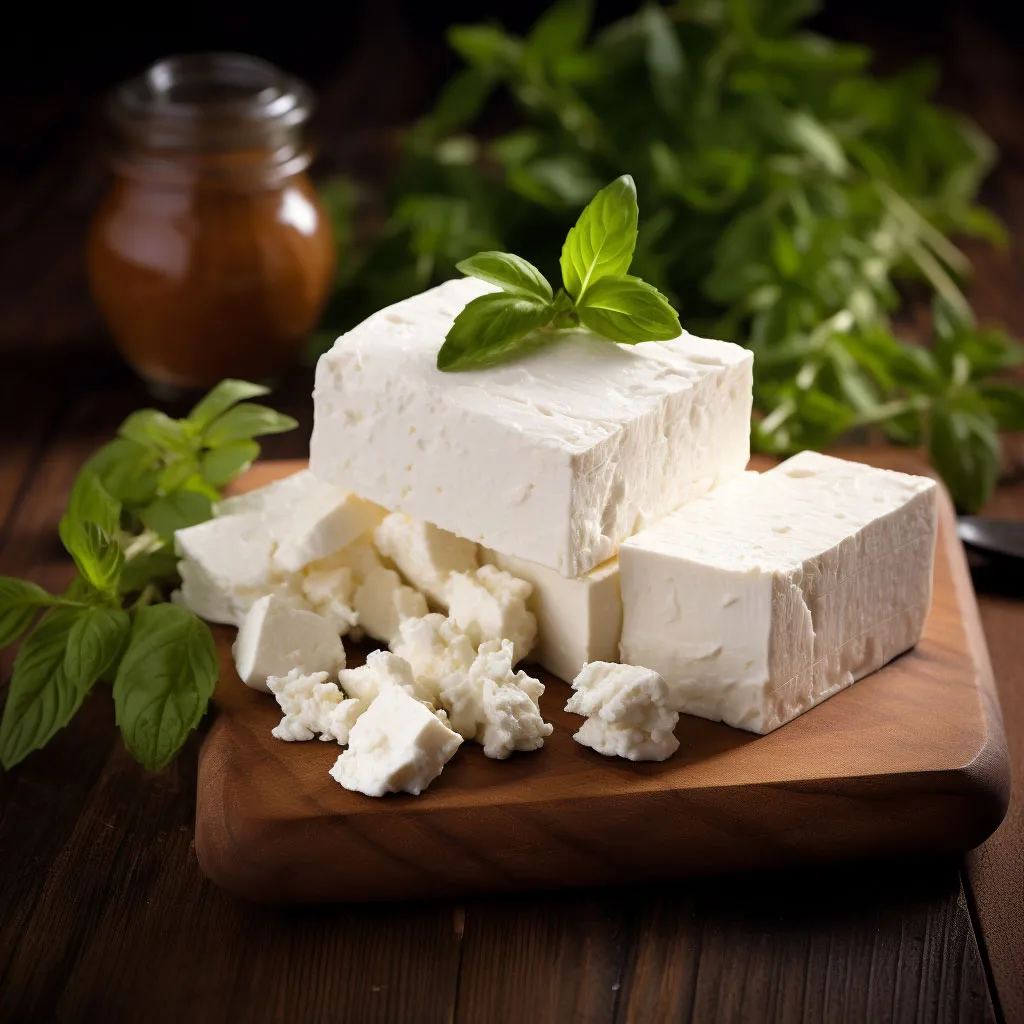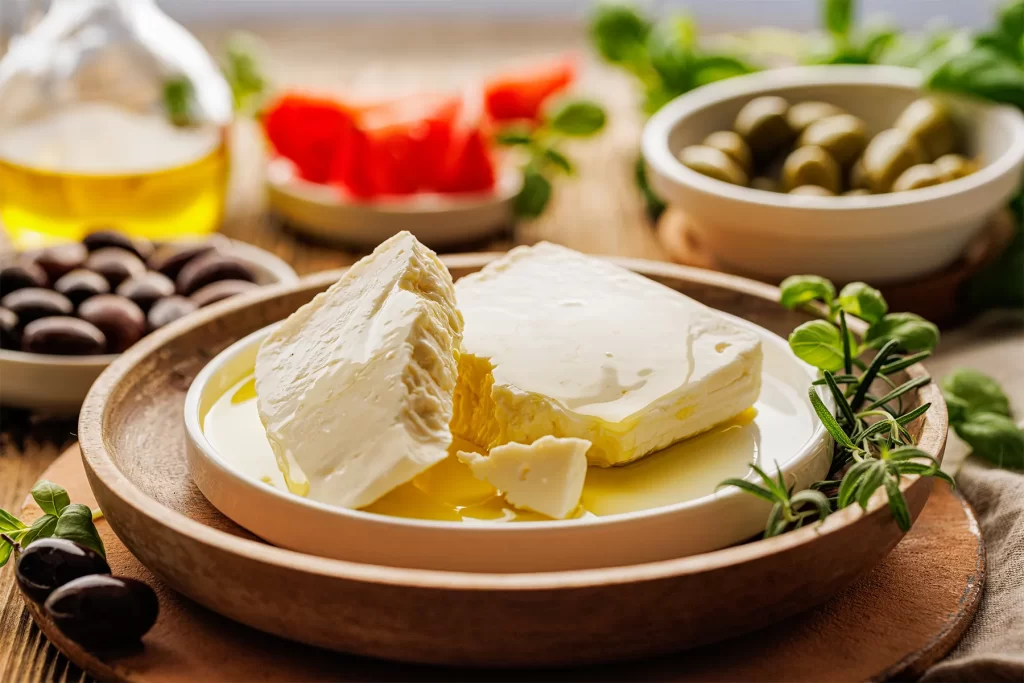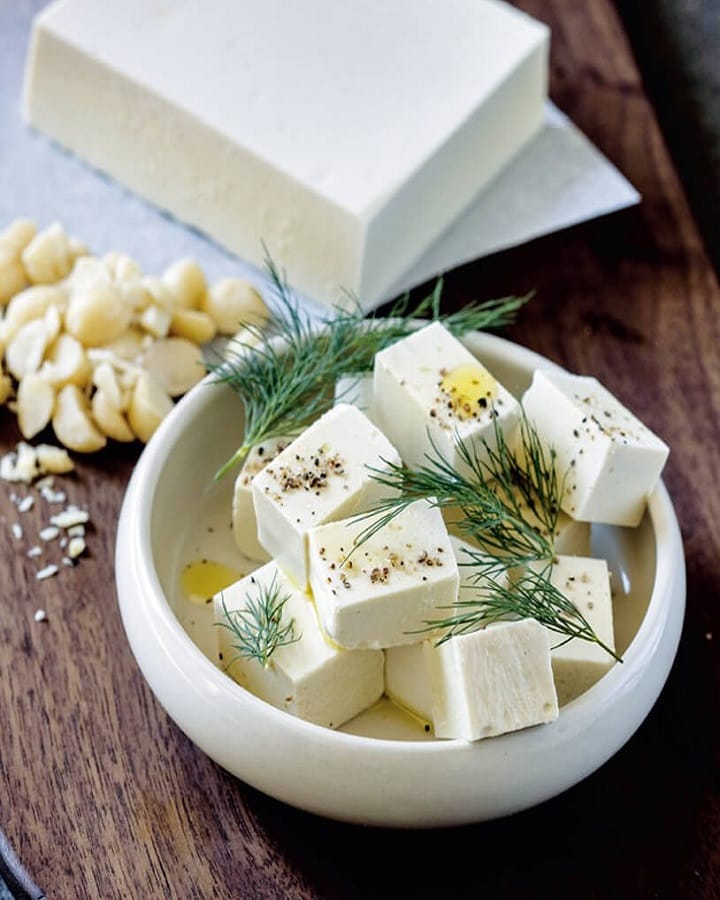
Image Credit – Hema
When it comes to flavorful cheeses with a rich history, feta cheese stands out as a Mediterranean treasure. Originating from Greece, this crumbly, tangy cheese is made primarily from sheep’s milk or a blend of sheep’s and goat’s milk. Beyond its delightful taste, Feta Cheese Nutrition offers impressive health benefits, making it a favorite among health-conscious food lovers. Packed with protein, essential vitamins, and beneficial fats, feta cheese is more than just a tasty addition to green salads and sandwiches—it’s a nutrient-dense food that supports a balanced diet. Whether you’re aiming to boost your calcium intake, add a source of healthy fats, or simply enjoy authentic Mediterranean flavors, feta cheese can be a wholesome choice.
Feta Cheese Nutrition

Feta Cheese Nutrition Facts
- Calories – A 1-ounce (28g) serving of feta cheese contains about 74 calories, making it a moderate-calorie cheese compared to others.
- Protein – With around 4 grams of protein per ounce, feta cheese helps in muscle repair, growth, and keeping you full for longer.
- Fats – Feta provides about 6 grams of fat per ounce, most of which are healthy saturated fats that help maintain cell structure and energy levels.
- Carbohydrates – Very low in carbs (around 1.2g per serving), feta cheese is an excellent choice for low-carb and keto diets.
- Calcium – Rich in calcium (14% of the daily recommended intake per serving), it supports strong bones and teeth.
- Vitamins & Minerals – Feta cheese is a good source of Vitamin B12, riboflavin, phosphorus, and zinc, all essential for overall health.
- Sodium – One thing to watch is its high sodium content, around 316 mg per ounce, which helps with flavor preservation but should be monitored for those on low-salt diets.
Health Benefits of Feta Cheese
- Supports Bone Health – The calcium and phosphorus content in feta helps strengthen bones and reduce the risk of osteoporosis.
- Good for Gut Health – Feta contains probiotics, beneficial bacteria that promote digestive health and improve immunity.
- Weight Management – High in protein and moderate in fat, feta can keep you feeling satisfied, helping control appetite.
- Heart Health – In moderate amounts, the healthy fats in feta may support cardiovascular health.
- Low in Lactose – Feta made from sheep or goat milk often contains less lactose than cow’s milk cheese, making it easier to digest for some people.
How to Add Feta Cheese to Your Diet
- Salads – Sprinkle crumbled feta over Greek salads, spinach salads, or roasted vegetable bowls.
- Omelets & Scrambles – Add feta to eggs for a creamy, tangy flavor boost.
- Wraps & Sandwiches – Use feta as a spread or filling with fresh veggies.
- Mediterranean Dishes – Incorporate feta in recipes like spanakopita, baked feta pasta, or stuffed peppers.
- Snack Boards – Pair feta with olives, cherry tomatoes, and whole-grain crackers.
Feta cheese is more than just a delicious topping—it’s a nutrient-packed food with a variety of health benefits. From strengthening bones to supporting gut health, Feta Cheese Nutrition proves why this Mediterranean cheese deserves a spot in your kitchen. Just remember to enjoy it in moderation, especially if you’re watching your sodium intake. Whether crumbled on salads or baked into savory dishes, feta brings both taste and nutrition to the table. Let us know in the comments how you like to use feta cheese in your meals!
Frequently Asked Questions
Is feta cheese healthy to eat every day?
Feta cheese can be part of a healthy diet if eaten in moderation. Its high calcium, protein, and probiotic content make it nutritious, but watch the sodium levels to avoid excess salt intake.
How does feta cheese compare to other cheeses in nutrition?
Feta cheese nutrition shows it’s lower in calories and fat than many aged cheeses, but higher in sodium. It’s rich in calcium, protein, and vitamins, making it a healthier choice for many people.
Is feta cheese good for weight loss?
Yes, feta can support weight loss thanks to its protein and healthy fats, which help keep you full. Choose low-sodium varieties and control portions for best results.







